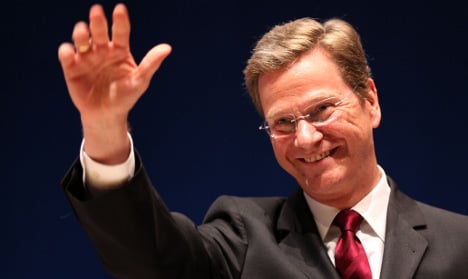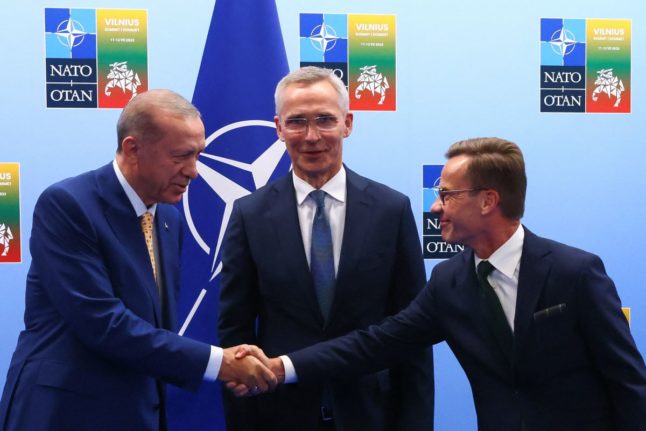It might be a bit premature to write a political obituary while someone is still in office, but Guido Westerwelle this week became a dead minister walking.
By most accounts, Germany’s extremely unpopular and hapless foreign minister narrowly hung onto his job only after grudgingly praising Berlin’s allies for their military efforts to oust Libyan dictator Muammar Qaddafi. Westerwelle had previously caused widespread outrage by claiming Germany’s support of UN sanctions had brought the North African strongman to his knees rather than the NATO’s air campaign on behalf of the Libyan rebels.
But the comments were merely yet another misstep in Westerwelle’s faux pas-filled tenure as Germany’s top diplomat.
A combative opposition politician, he led his pro-business Free Democrats (FDP) to a smashing election victory in 2009. The FDP won more than 14 percent of the vote and Westerwelle was named foreign minister in Chancellor Angela Merkel’s
centre-right coalition.
That, however, would mark the pinnacle of the 49-year-old’s career.
Few observers thought he was cut-out to be foreign minister, and unfortunately he has done little to dispel such scepticism over the past two years, bumbling from one mishap to the next.
Fresh in office, Westerwelle was immediately criticized for appearing to take along friends and family on official trips for their own private gain. Never particularly well-liked, the brusque Westerwelle steadfastly refused to admit he’d made a mistake, which made people less willing to cut him any slack in the following months.
Some of his minor sins included embarrassing Germans by refusing to take a question from a BBC reporter in English and being roasted for implying his country’s beloved welfare state was a prelude to “late Roman decadence.”
However, his handling of the Libya crisis – which saw him abandon Germany’s closest allies during a vote in the UN Security Council in March – is likely to be remembered as the fatal blow to his political career.
Across the political spectrum, from former Chancellor Helmut Kohl to former Foreign Minister Joschka Fischer, concerns were expressed that Germany had become isolated and irrelevant.
Even many German opponents of NATO’s military intervention in Libya said Westerwelle botched Berlin’s decision to sit out the fighting with his grating and undiplomatic demeanour.
When Philipp Rösler, Westerwelle’s successor as FDP chairman, effectively reprimanded the foreign minister last Friday by publicly praising Germany’s NATO allies, most observers thought Guido’s time had come. The country’s biggest newspapers this week even started writing his political obituary – Westerwelle had become a “failed” foreign minister “on probation.”
But with two state elections over the next fortnight, Rösler might need Westerwelle as a scapegoat for the expected dismal showings by the FDP in Berlin and Mecklenburg-Western Pomerania. And Chancellor Merkel, of course, is also aware that Westerwelle is taking the brunt of the blame for decisions she also helped take.
So Westerwelle might not be politically dead yet, but he’s not alive either. Lurching along the halls of the Foreign Ministry, Guido has officially become a foreign policy zombie.
Marc Young



 Please whitelist us to continue reading.
Please whitelist us to continue reading.
Member comments